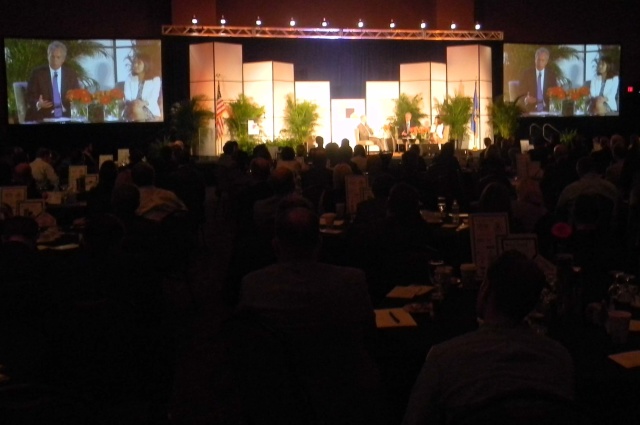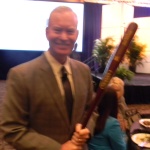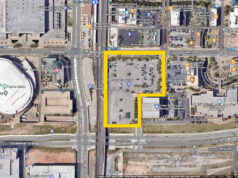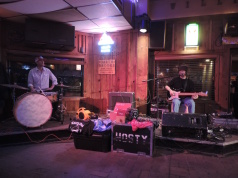
The best and the worst of Oklahoma City’s annual Mayor’s Development Roundtable always seem to follow the same pattern: Once again, the big weakness of the 2016 conference was the lack of people of color in the room as well as a lack of attention to the city’s social and economic problems. On the other hand, excellent speakers presented astute analyses of urban policies that are working in mid-size cities.
Surely the success of what Oklahoma City is accomplishing is related to the evidence-based planning that was on display at the event.
The keynote speakers — Google X’s Jennifer Haroon and Louisville Mayor Greg Fischer — gave us glimpses of a future that works. In doing so, they didn’t seem to realize that they were offering alternatives to two of modern Oklahoma City’s original sins: letting the automobile drive suburban sprawl and letting racism turn that awful urban error into white flight.
Louisville’s successes could be OKC’s
Most importantly, Fischer brought a reminder that Oklahoma City (and most urban centers) did not have to react so disgracefully to desegregation. Fischer was too polite to draw the contrast, but President Dwight Eisenhower praised the way that Louisville sought to follow the spirit and the letter of the Supreme Court’s Brown v. Topeka desegregation ruling. In the end, Louisville’s commitment to integration did not survive suburban and white flight, but its desegregation efforts raised student performance more than any subsequent school-reform efforts. It also laid a foundation for Louisville to benefit from Kentucky’s pioneering efforts in standards-based reforms (as opposed to the standardized test-based reforms that followed in Oklahoma and elsewhere).

Given the conference’s time (the day after the Thunder advanced in the NBA playoffs) and the place, it was no surprise that basketball references frequently prompted normative, celebratory clapping. But it was when Fischer changed the subject to racial justice that the loudest and most genuine applause erupted. He started by addressing violence and the rising murder rate, and then described restorative practices for breaking the cycle of revenge. For instance, in the wake of violent crimes, Louisville’s counselors intervene, talk with victims, and interrupt the tendency for retaliation to be taken. Fischer also spoke eloquently on wraparound services for students, mentoring programs and challenging STEM (science, technology and math) instruction for poor children of color.
Fischer’s account of cross-generational, cross-racial discussions was the most pointed illustration of the best aspects of all the presentations. To rise to greatness, we need conversations that transcend racial, class and other distinctions. All types of people need to come together in welcoming environments and share their diverse insights.
Presentations emphasize placemaking
My favorite presentations dealt with the role of public art, music and other cultural expressions that play a role in “placemaking,” or the creation of dynamic sites where neighborliness flourishes.
Haroon’s overview of the Google X driverless car project made a powerful case that technology may help fix the worst legacies of our addiction to automobiles. The detail-oriented project stands in stark contrast to the mindless way that Oklahoma City let devotion to our cars undermine our sense of community and our physical, cultural and environmental health. It would be great if Oklahoma City could become a testing ground for the new technology but, more importantly, it is already time to start visualizing ways that this technology could revitalize our neighborhoods.
Additionally, Michael Eric Owens, community development director for the Alliance for Economic Development of Oklahoma City, displayed great examples of public art. Later, Scott Booker, director of the Academy of Contemporary Music, and Scott Marsh, of Hellfire Management, described the way that AMC@UCO teaches students how to thrive in the contemporary entertainment industry while a vibrant music scene is created in Bricktown. Last, Douglas Sorocco, of the Dunlap Codding law firm, explained how his law firm moved its office to Film Row and opened a public space where the full diversity of Oklahoma City comes together. They essentially created a venue for the contemporary expression of placemaking.
Students should get scholarships to attend
So, here’s my suggestion for next year’s Development Roundtable: Why not offer scholarships for high school students to attend these conferences?
Such field trips obviously would provide wonderful learning opportunities to students, but I bet the adults would learn as much as kids from the resulting conversations.




















